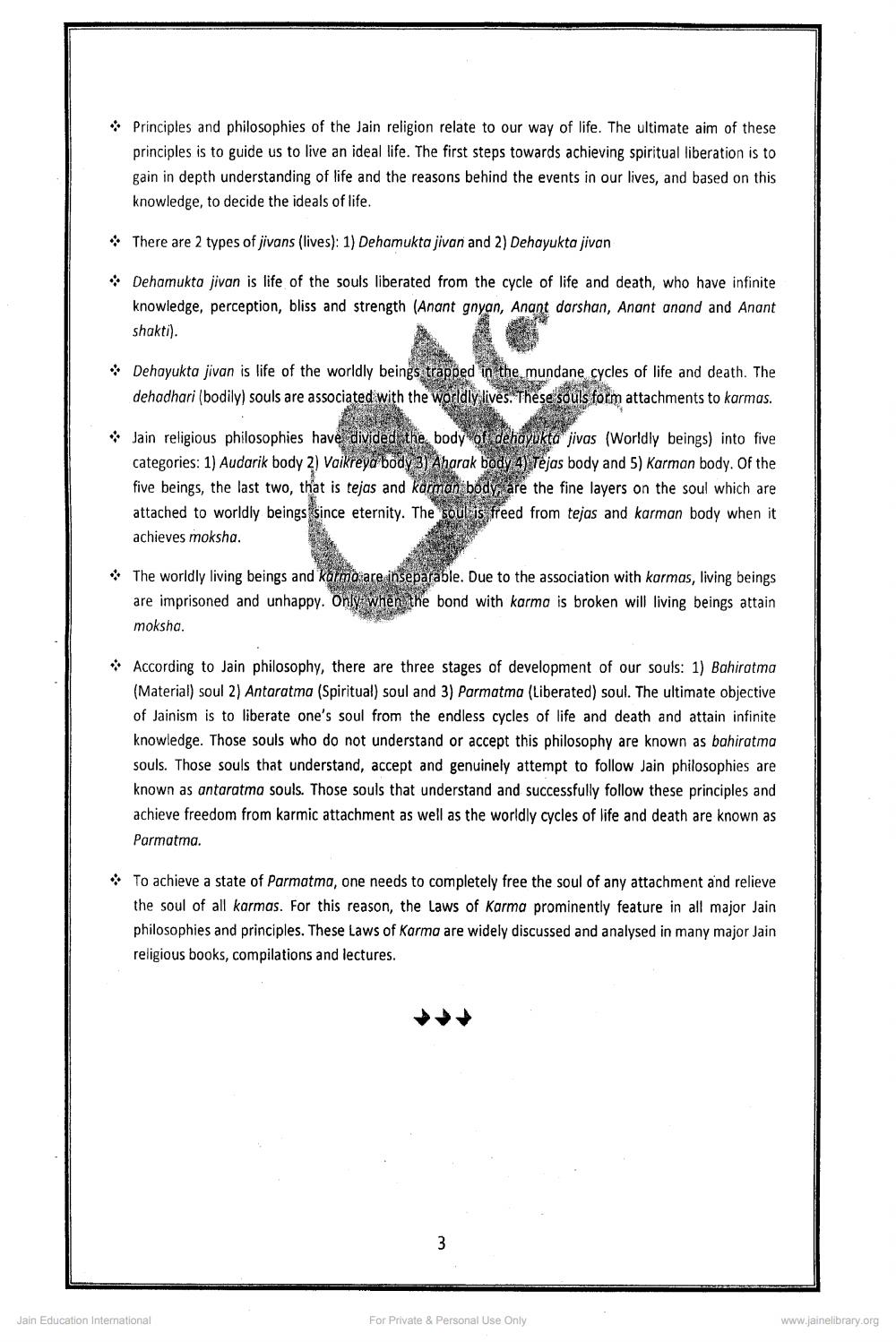Book Title: Karma Vignayan Shibir-2008-2009 Author(s): Jinchandra Acharya Publisher: ZZZ Unknown View full book textPage 3
________________ Principles and philosophies of the Jain religion relate to our way of life. The ultimate aim of these principles is to guide us to live an ideal life. The first steps towards achieving spiritual liberation is to gain in depth understanding of life and the reasons behind the events in our lives, and based on this knowledge, to decide the ideals of life. There are 2 types of jivans (lives): 1) Dehamukta jivan and 2) Dehayukta jivan Dehamukta jivan is life of the souls liberated from the cycle of life and death, who have infinite knowledge, perception, bliss and strength (Anant gnyan, Anant darshan, Anant anand and Anant shakti). • Dehayukta jivan is life of the worldly beings trapped in the mundane cycles of life and death. The dehadhari (bodily) souls are associated with the worldly.lives. These souls form attachments to karmas. Jain religious philosophies have divided the body of dehayukta jivas (Worldly beings) into five categories: 1) Audarik body 2) Vaikreya body 3) Aharak body. 4) Tėjas body and 5) Karman body. Of the five beings, the last two, that is tejas and karmon body, are the fine layers on the soul which are attached to worldly beings since eternity. The soul is freed from tejas and karman body when it achieves moksha. The worldly living beings and katma are inseparable. Due to the association with karmas, living beings are imprisoned and unhappy. Only when the bond with karma is broken will living beings attain moksha. According to Jain philosophy, there are three stages of development of our souls: 1) Bahiratma (Material) soul 2) Antaratma (Spiritual) soul and 3) Parmatma (Liberated) soul. The ultimate objective of Jainism is to liberate one's soul from the endless cycles of life and death and attain infinite knowledge. Those souls who do not understand or accept this philosophy are known as bahiratma souls. Those souls that understand, accept and genuinely attempt to follow Jain philosophies are known as antaratma souls. Those souls that understand and successfully follow these principles and achieve freedom from karmic attachment as well as the worldly cycles of life and death are known as Parmatma. * To achieve a state of Parmatma, one needs to completely free the soul of any attachment and relieve the soul of all karmas. For this reason, the laws of Karma prominently feature in all major Jain philosophies and principles. These Laws of Karma are widely discussed and analysed in many major Jain religious books, compilations and lectures. Jain Education International For Private & Personal Use Only www.jainelibrary.orgPage Navigation
1 2 3 4 5 6 7 8 9 10 11 12 13 14
